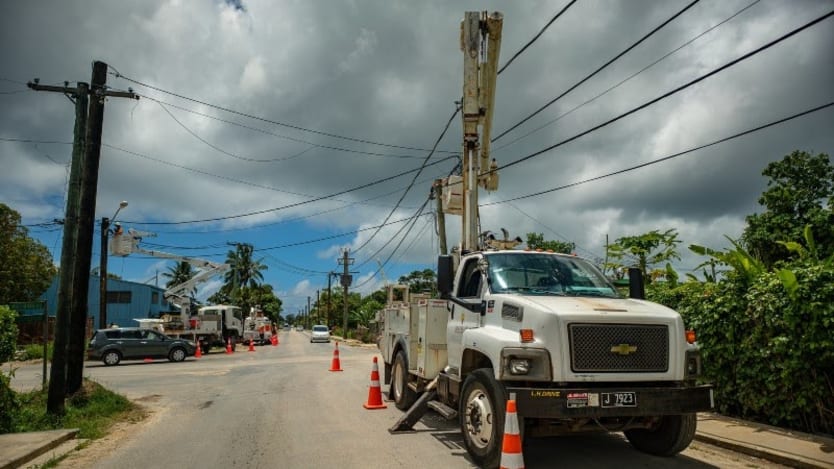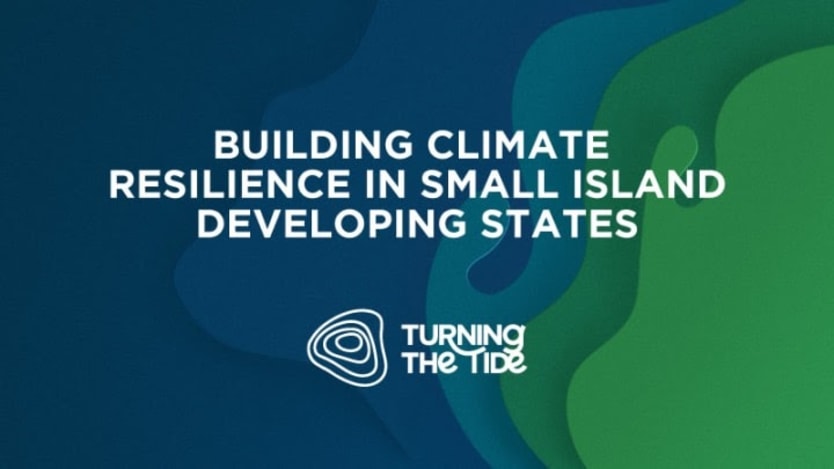
Just as the global economic impact of COVID-19 was becoming clear, nations in the Pacific were dealt another blow. A few days after most Pacific island nations went into lockdown in the first week of April, Cyclone Harold swept across the Solomon Islands, Vanuatu, Fiji, and Tonga, leaving widespread destruction behind it.
Climate change makes cash and vouchers essential — here's what is needed to make it happen
With climate change increasing the risk of natural disasters, cash and voucher assistance may better enable short-term humanitarian assistance for remote and regional communities, according to a study in the Solomon Islands.
Inia Seruiratu, Fiji’s minister for disaster management, said that Harold had caused damage estimated at 100 million Fijian dollars ($46 million), particularly to infrastructure, housing, and agriculture. In some regions of Vanuatu, 80% to 90% of the population is estimated to have lost homes, and damage to power stations means that some people are without electricity or running water over a month later.
Harold also claimed 27 lives in the Solomon Islands when a crowded ferry carrying coronavirus evacuees was caught in rough seas caused by the cyclone. The double impact of a climate-related disaster amid a global health crisis has made clear the need for a radical new approach to managing risk in the Pacific.
Small island developing states, or SIDS, in the Pacific are arguably at the sharpest end of the negative consequences of climate change. In the past few years, the Pacific SIDS have experienced a series of extreme weather events that have caused serious damage to people’s livelihoods.
Since 2015, three Category 5 tropical cyclones — the strongest rating for these types of storms — have made landfall in Pacific nations. These countries, particularly Vanuatu, were still recovering when the COVID-19 crisis and Harold hit. Due to climate change, the intensity and frequency of these extreme weather events are increasing.
This poses a real obstacle to the continued economic development of the Pacific islands by undermining the financial resilience of people and businesses. Resilient people are protected from sliding into or experiencing deepening poverty due to economic shocks caused by extreme weather events. Resilient businesses, especially those supplying core needs such as food, are vital to recovery from such disasters.
Without those resilient communities and industries, we risk decades of development work being undone by climate change.
The recovery from previous extreme weather events relied mostly on foreign aid. Restrictions on movement due to the coronavirus are slowing down the flow of relief items. At the time of publication, Vanuatu had yet to report any cases of COVID-19 and, in an effort to keep it that way, has banned foreign aid workers from entering.
In addition, the economic impact of the lockdown, felt especially by countries that are reliant on tourism — such as Fiji, where the industry represents some 40% of the gross domestic product — can be expected to significantly hamper efforts to rebuild.
This situation is unique, but the Pacific islands’ need for solutions that allow them to recover faster from climate-related extreme weather events without relying too heavily on foreign assistance is not. Disaster risk financing, such as insurance, offers a solution. By managing and transferring risk, individuals and businesses can help build financial resilience. However, the socioeconomic and geographical features of the region make it unattractive to insurers and reinsurers.
There is a need for innovative new solutions, and it’s often in the direst situations that those innovations appear.
—Data on businesses is difficult to acquire because the vast majority are informal small businesses. Small geographically dispersed islands and a lack of transport infrastructure make both the distribution of insurance and assessment of risks difficult. Without complete knowledge of customers’ needs or a clear way to reach them, designing and selling these services is extremely challenging.
There are a number of different organizations working to overcome these difficulties. For instance, the Pacific Catastrophe Risk Assessment and Financing Initiative aims to provide the Pacific SIDS with tools for disaster risk modeling and assessment.
Another recently created United Nations initiative will address the challenges of assessing damage by developing regional index-based insurance and other climate disaster risk financing instruments for natural disasters such as cyclones. Rather than assessing damage on an individual basis, index-based insurance pays out against a certain index — rainfall, for example.
Harold shows us the difference this can make. In Vanuatu, telecommunications infrastructure was destroyed, making short-term assessments of damage incredibly difficult. The partnership between the United Nations Capital Development Fund, United Nations Development Programme, and Munich Climate Insurance Initiative — managed by the United Nations University — will draw on experience from other regions to build south-south cooperation, particularly for Latin American and Caribbean countries that set up a similar facility in 2007.
While index-based assessment reduces some of the administrative costs for insurers, it doesn’t solve the issue of risk. Insuring people who will almost certainly experience another extreme weather event presents an unacceptably high level of risk for insurers.
The Pacific Insurance and Climate Adaptation Initiative will address this issue by convening these island states into a federated risk pool. While products will be delivered through financial service providers in each country, the risk will be shared across countries — a demonstration of regional cooperation.
This is not the first time that island states have come together to develop innovative approaches to regional issues. In March, the Pacific Islands Regional Initiative launched the world’s first regional regulatory sandbox. Participating nations will trial new fintech innovations — those that are not currently covered by legislation — in a secure environment. If they prove to be commercially viable and beneficial to society, innovations tested in one country will gain entry to several others with minimal approvals.
Beyond index-based insurance, there is a need for innovative new solutions, and it’s often in the direst situations that those innovations appear. This initiative will be central to this process; we are setting up an innovation lab aimed at creating new digitally enabled products and services to manage and transfer climate disaster risks to suit the needs of the notoriously challenging context of these island nations.
COVID-19 shows us how a global disaster might affect the provision of aid to the poorest and worst-affected countries. We need to find regional solutions to the global problem of climate change so that countries can remain resilient when disaster strikes and the world’s attention is elsewhere.
Update, June 4, 2020: This article has been updated to reflect that Pacific Insurance and Climate Adaptation Initiative will convene these island states into a federated risk pool.
Visit the Turning the Tide series for more coverage on climate change, resilience building, and innovative solutions in small island developing states. You can join the conversation using the hashtag #TurningtheTide.



